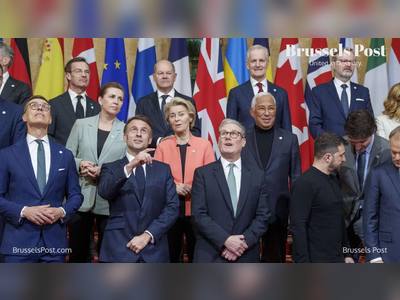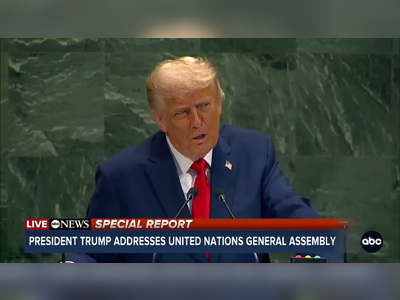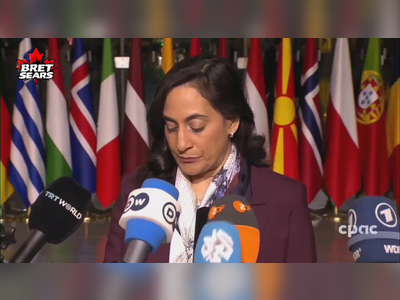
EU's Pharmaceutical Sector Faces Challenges Amid U.S. Tariff Threats
Greek MEP Nikos Papandreou outlines potential avenues for EU resilience in Pharma amidst U.S. protectionism.
The implementation of increased tariffs by the Trump administration could significantly disrupt the European Union's pharmaceutical sector.
Greek Member of the European Parliament (MEP) Nikos Papandreou, representing the Progressive Alliance of Socialists and Democrats (S&D), has expressed concerns regarding the potential impact on EU trade and competitiveness.
In a recent discussion, Papandreou highlighted that Washington's focus on repatriating pharmaceutical production could lead to greater costs and industry disruption for European manufacturers.
The MEP noted that the protectionist approach adopted by the U.S. might inadvertently prompt the EU to bolster its industrial capabilities in crucial pharmaceutical areas.
This response could involve refining existing pharmaceutical legislation to attract investment and strengthen supply chain security.
He emphasized the necessity for increased research and development incentives, expanded public-private partnerships, and the pursuit of enhanced trade agreements to navigate these challenges effectively.
Papandreou also pointed to the Critical Medicines Act (CMA) being discussed in Brussels, describing it as a vital initiative aimed at addressing Europe's reliance on external suppliers for essential pharmaceuticals.
He stressed the vulnerabilities exposed by the COVID-19 pandemic and noted that the increasing dependence on supplies from Asia for active pharmaceutical ingredients (APIs) and finished products calls for urgent measures to enhance the EU's pharmaceutical security and strategic autonomy.
The successful implementation of the CMA is deemed crucial for improving local production capabilities and ensuring the availability of critical medicines for EU citizens.
However, Papandreou maintained that achieving these goals will depend on adequate investments, effective regulatory frameworks, and strong coordination among member states.
He asserted that improvements in local production and enhanced supply chain resilience would be essential outcomes if the CMA is executed correctly.
The discussion around the CMA and its intended effects on public health and pharmaceutical competitiveness come at a time when the EU is contemplating reforms in its broader pharmaceutical legislation.
Papandreou remarked on potential opportunities for joint procurement of essential medications, highlighting experiences from the COVID-19 vaccine rollout as promising examples of how collaborative approaches could enhance access and supply security.
In addition to these policies, Papandreou addressed the Life Science Strategy and the Biotech Act, noting their potential to stimulate innovation and attract investment to bolster the EU's pharmaceutical sovereignty.
He identified risks related to regulatory complexity and high costs, emphasizing the need for a balanced regulatory approach to manage these challenges effectively.
The MEP underscored the importance of digital transformation within healthcare systems, pointing out the potential benefits it could bring, such as enhanced diagnostics, streamlined hospital management, and improved accessibility to healthcare services.
He advocated for utilizing health technology and artificial intelligence (AI) to transform healthcare delivery, focusing on data-driven decision-making and electronic health records.
Papandreou called for a unified political approach to public health matters, insisting that the well-being of EU citizens should transcend partisan differences.
He pointed to the significant challenges posed by chronic health issues, including cardiovascular conditions and the alarming state of mental health, particularly among younger populations.
He urged further efforts to tackle avoidable mortality risks stemming from lifestyle choices and to improve mental health literacy and access to services.
Overall, the European Parliament's discussions indicate a proactive stance in addressing external threats while seeking to leverage the situation as an opportunity to reinforce the EU's position in the global pharmaceutical landscape.
Greek Member of the European Parliament (MEP) Nikos Papandreou, representing the Progressive Alliance of Socialists and Democrats (S&D), has expressed concerns regarding the potential impact on EU trade and competitiveness.
In a recent discussion, Papandreou highlighted that Washington's focus on repatriating pharmaceutical production could lead to greater costs and industry disruption for European manufacturers.
The MEP noted that the protectionist approach adopted by the U.S. might inadvertently prompt the EU to bolster its industrial capabilities in crucial pharmaceutical areas.
This response could involve refining existing pharmaceutical legislation to attract investment and strengthen supply chain security.
He emphasized the necessity for increased research and development incentives, expanded public-private partnerships, and the pursuit of enhanced trade agreements to navigate these challenges effectively.
Papandreou also pointed to the Critical Medicines Act (CMA) being discussed in Brussels, describing it as a vital initiative aimed at addressing Europe's reliance on external suppliers for essential pharmaceuticals.
He stressed the vulnerabilities exposed by the COVID-19 pandemic and noted that the increasing dependence on supplies from Asia for active pharmaceutical ingredients (APIs) and finished products calls for urgent measures to enhance the EU's pharmaceutical security and strategic autonomy.
The successful implementation of the CMA is deemed crucial for improving local production capabilities and ensuring the availability of critical medicines for EU citizens.
However, Papandreou maintained that achieving these goals will depend on adequate investments, effective regulatory frameworks, and strong coordination among member states.
He asserted that improvements in local production and enhanced supply chain resilience would be essential outcomes if the CMA is executed correctly.
The discussion around the CMA and its intended effects on public health and pharmaceutical competitiveness come at a time when the EU is contemplating reforms in its broader pharmaceutical legislation.
Papandreou remarked on potential opportunities for joint procurement of essential medications, highlighting experiences from the COVID-19 vaccine rollout as promising examples of how collaborative approaches could enhance access and supply security.
In addition to these policies, Papandreou addressed the Life Science Strategy and the Biotech Act, noting their potential to stimulate innovation and attract investment to bolster the EU's pharmaceutical sovereignty.
He identified risks related to regulatory complexity and high costs, emphasizing the need for a balanced regulatory approach to manage these challenges effectively.
The MEP underscored the importance of digital transformation within healthcare systems, pointing out the potential benefits it could bring, such as enhanced diagnostics, streamlined hospital management, and improved accessibility to healthcare services.
He advocated for utilizing health technology and artificial intelligence (AI) to transform healthcare delivery, focusing on data-driven decision-making and electronic health records.
Papandreou called for a unified political approach to public health matters, insisting that the well-being of EU citizens should transcend partisan differences.
He pointed to the significant challenges posed by chronic health issues, including cardiovascular conditions and the alarming state of mental health, particularly among younger populations.
He urged further efforts to tackle avoidable mortality risks stemming from lifestyle choices and to improve mental health literacy and access to services.
Overall, the European Parliament's discussions indicate a proactive stance in addressing external threats while seeking to leverage the situation as an opportunity to reinforce the EU's position in the global pharmaceutical landscape.
AI Disclaimer: An advanced artificial intelligence (AI) system generated the content of this page on its own. This innovative technology conducts extensive research from a variety of reliable sources, performs rigorous fact-checking and verification, cleans up and balances biased or manipulated content, and presents a minimal factual summary that is just enough yet essential for you to function as an informed and educated citizen. Please keep in mind, however, that this system is an evolving technology, and as a result, the article may contain accidental inaccuracies or errors. We urge you to help us improve our site by reporting any inaccuracies you find using the "Contact Us" link at the bottom of this page. Your helpful feedback helps us improve our system and deliver more precise content. When you find an article of interest here, please look for the full and extensive coverage of this topic in traditional news sources, as they are written by professional journalists that we try to support, not replace. We appreciate your understanding and assistance.










